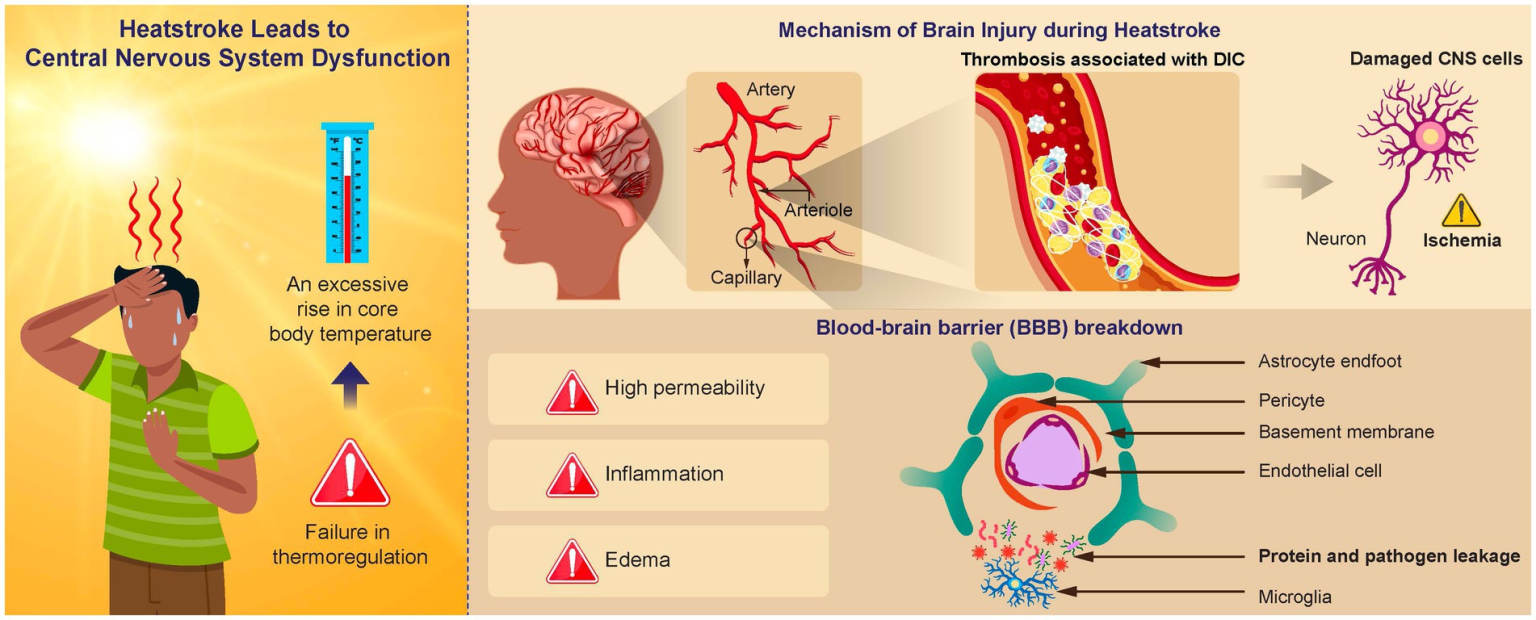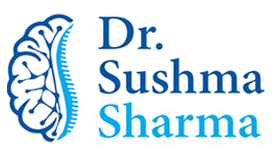Heat Stroke and the Brain: A Neurological Emergency
Heat stroke is not just a seasonal concern—it’s a life-threatening condition that can lead to brain damage. It occurs when the body overheats, usually due to prolonged exposure to high temperatures or physical exertion in the heat.
Symptoms to Watch For in Heat Stroke
- High Body Temperature (Above 104°F / 40°C):
A core temperature this high is a medical emergency and the first sign of heat stroke. - Confusion or Altered Mental State:
The person may appear disoriented, have slurred speech, or seem unusually agitated or irrational. - Seizures:
High temperatures can disrupt brain function, leading to convulsions or fits. - Unconsciousness or Fainting:
Loss of consciousness is a severe indicator that the brain is not coping with the heat. - Rapid Heartbeat (Tachycardia):
The body overworks to cool down, leading to a fast and sometimes irregular pulse. - Hot, Dry Skin (No Sweating):
Unlike heat exhaustion, heat stroke often presents with dry skin due to failure of the body’s cooling system.
Neurological Complications of Heat Stroke
- Brain Swelling (Cerebral Edema):
Extreme heat can cause the brain to swell, leading to pressure buildup and potential permanent damage. - Impaired Cognitive Function:
Memory loss, confusion, difficulty concentrating, and poor judgment can result from heat-related brain injury. - Loss of Coordination:
The person may have difficulty walking, speaking clearly, or performing simple motor tasks.
Why Immediate Help from a Neurology Expert in Faridabad is Crucial:
Our team, led by the best neurologist in Faridabad, provides emergency neuro care to minimize long-term damage. Rapid cooling and neurological monitoring are key to recovery.
Preventive Measures:
- Avoid outdoor activity during peak heat
- Stay hydrated
- Wear light, breathable clothing
- Monitor vulnerable individuals (elderly, children, those with chronic conditions)
Don’t take chances with heat stroke—seek expert neurology care if symptoms arise.










